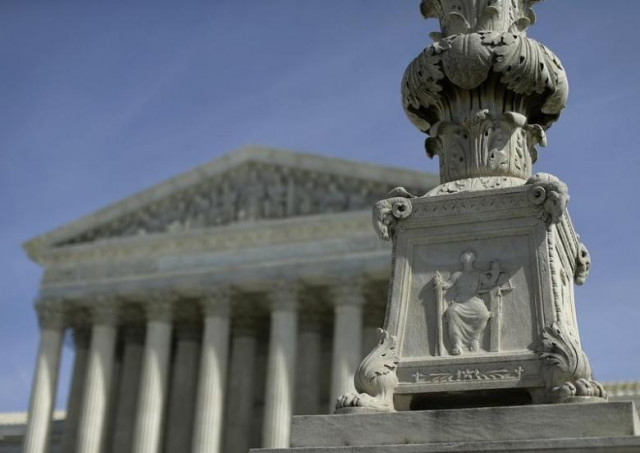
The case could have an impact on more prominent ones in the United States, notably the ongoing controversy over the US capital's football team, the Washington Redskins, which many Native Americans find offensive.
Being racially offensive in a kingdom obsessed with skin colour
The eight justices appeared undecided as they heard arguments in a case that pits the US Constitution's sacrosanct First Amendment, which guarantees freedom of speech, against the United States Patent and Trademark Office, considered the world's most influential body of its sort.
The Slants, who enjoy a following in alternative rock circles on the US West Coast with their electroclash sound, consist of four Asian Americans.
When the band's founder, Simon Tam, tried to register the name with the patent office, the agency refused to do so on the grounds that it was derogatory.
The word slant is "a negative term regarding the shape of the eyes of certain persons of Asian descent" that has a "long history of being used to deride and mock a physical feature of those individuals," an attorney for the patent office ruled.
Scottish politician on tackling racist abuse following oath-taking in Urdu
The Slants have since taken on an activist role, while ironically calling themselves The Band Who Must Not Be Named in a reference to "Harry Potter" villain Lord Voldemort.
The band said it is hoping to take back the term in the same way that some African Americans have embraced the offensive N-word when speaking of themselves.
Tam, speaking to AFP after the hearing, said the patent office could not find "a single Asian American who found it disparaging" and boasted of community support, including from Japanese Americans incarcerated during World War II.
"Asian Americans have been using the term slant in a self-referential, empowering way for decades now," Tam said.
The decade-old band from Portland, Oregon has frequently taken a provocative approach to racial identity. One work is called "The Yellow Album" -- a play on The Beatles' "White Album."
The rockers have found broad support, including from the American Civil Liberties Union, which staunchly defends freedom of expression, and the premier business lobby, the US Chamber of Commerce.
Other backers include Dykes on Bikes, a group of lesbian motorcyclists who managed to register the name after five years of fighting but is still battling to make its logo official.
Anti-Muslim poster displayed at UK eatery sparks controversy
The US administration countered that the patent office's decision did not violate the First Amendment as the government enjoys discretion when deciding on a host of benefits.
"There's no question that through their music, The Slants are expressing views on social and political issues. They have a First Amendment right to do that," said Malcolm Stewart, the deputy solicitor general.
"They're able to copyright their songs and get intellectual property protection that way," he said.
The outgoing Obama administration has hardly been adamantly against The Slants.
The Defense Department enlisted the band to entertain troops in Bosnia and Kosovo, while Obama included a track by The Slants in a collection of music against harassment.
The Supreme Court ruling, to be delivered by July, would effectively decide on the limits to free speech, which historically has been highly protected in the United States.
In previous decisions, the Supreme Court has upheld on First Amendment grounds a range of activities that offend many, including the burning of the American flag and the distribution of sexual fetishist videos that depict the crushing of small animals.
The patent office in its own decisions has also found other names too derogatory for protection.
It refused to allow a Lebanese wine seller to use "Khoran" out of respect for Muslims, whose holy book bears a similar name and forbids drinking alcohol.
It also would not register the name "Porno Jesus" to a project said to be producing pornography with Christian values.


















COMMENTS
Comments are moderated and generally will be posted if they are on-topic and not abusive.
For more information, please see our Comments FAQ